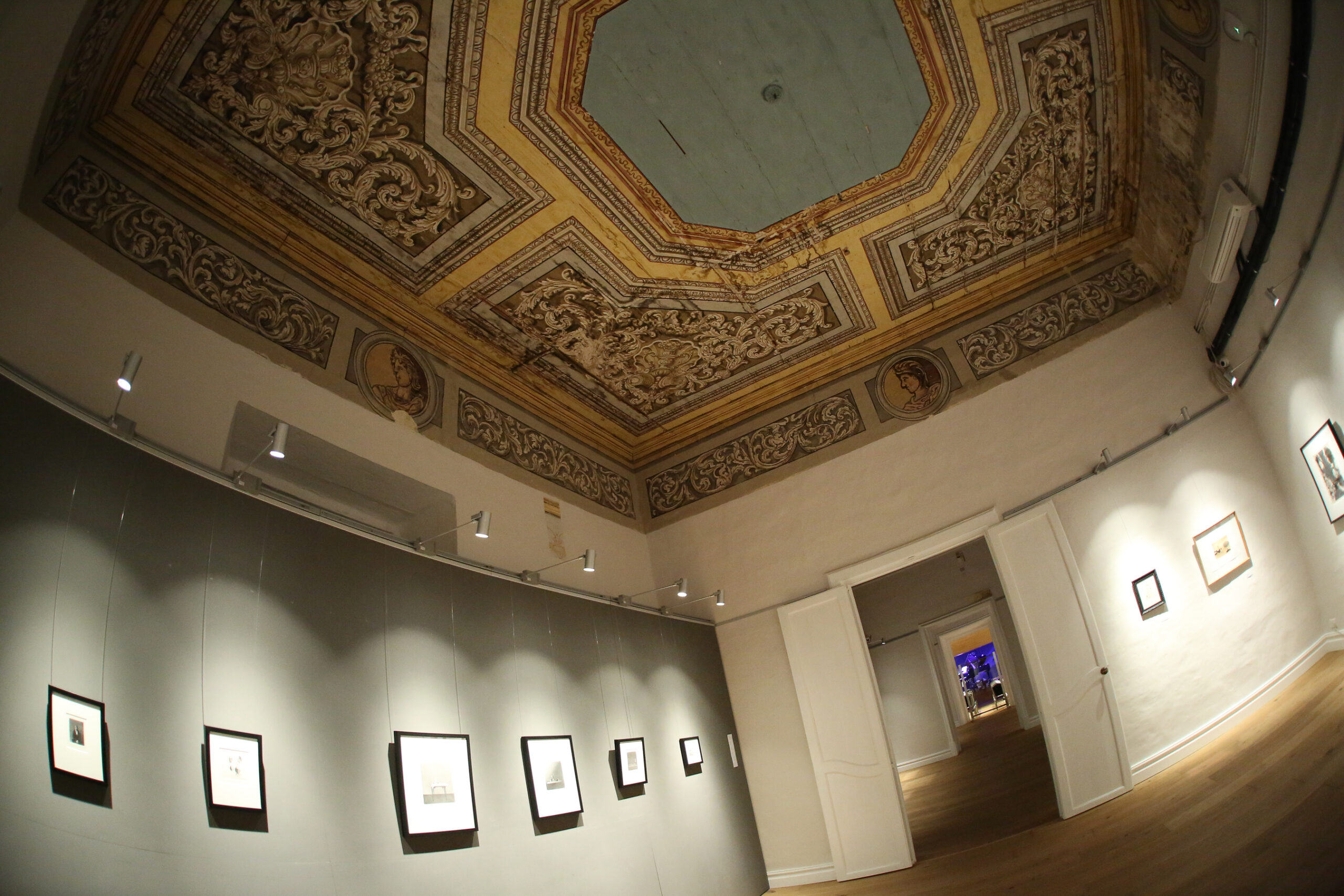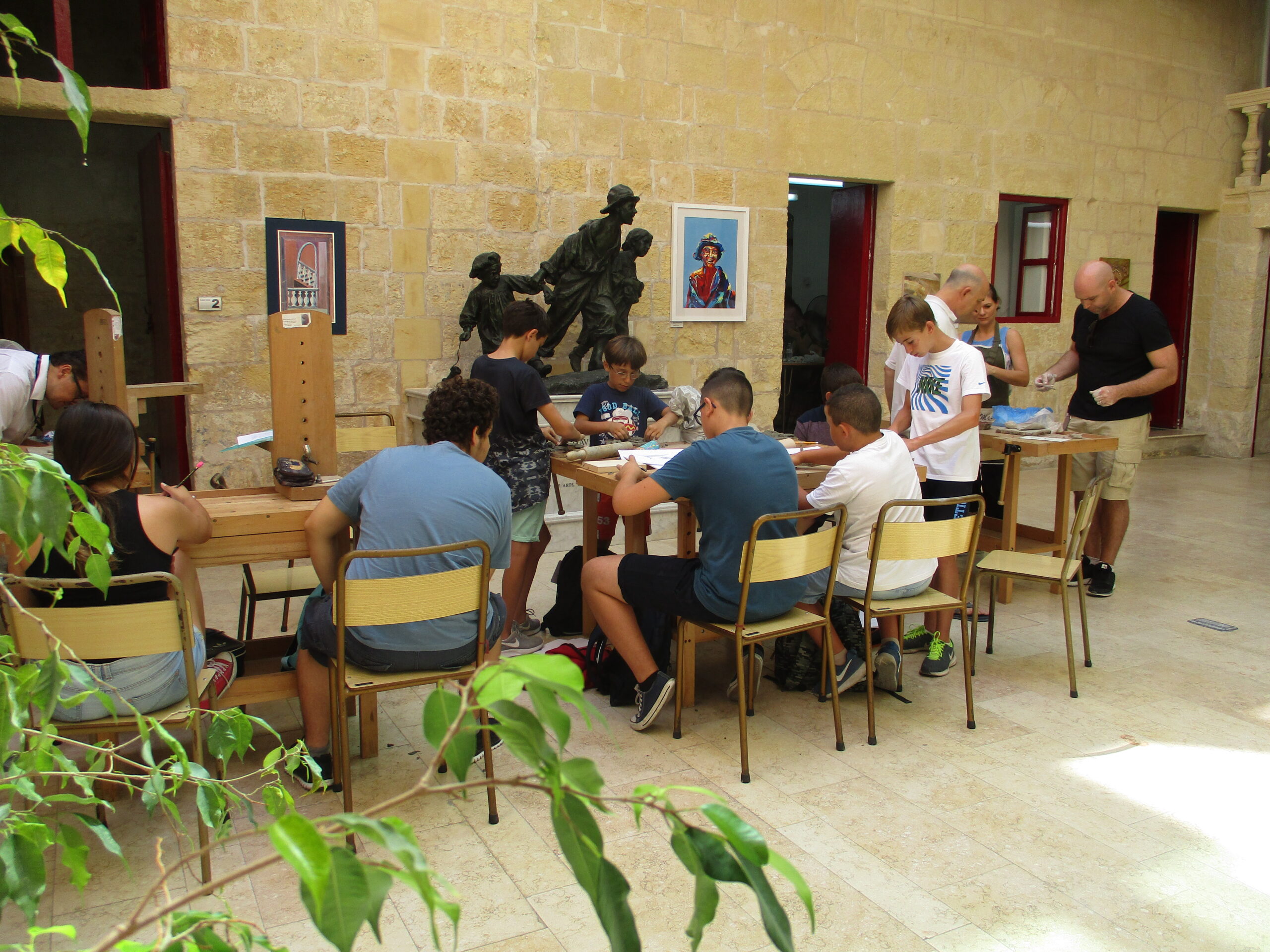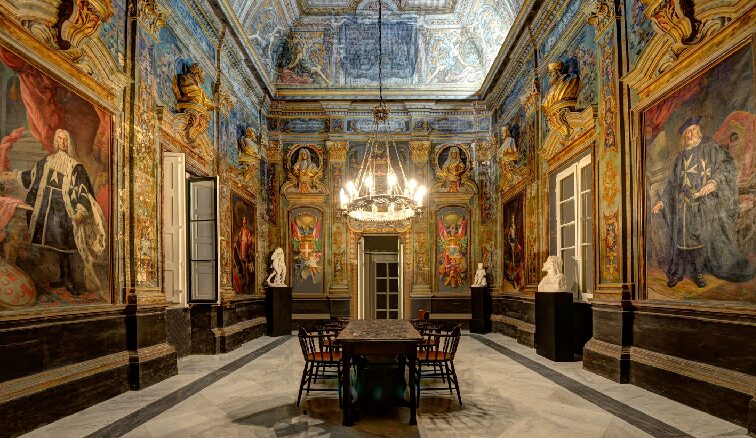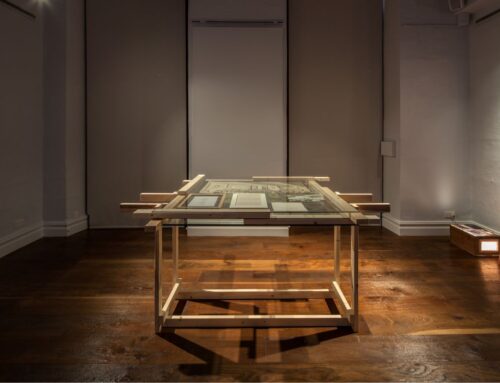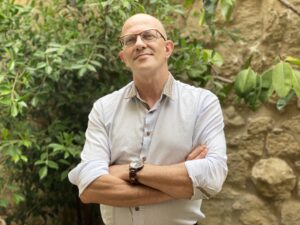
Adrian Mamo, the president of the Malta Society of Arts, takes us on a journey through the history and activities of the MSA. The Society went online during COVID-19 while carrying out maintenance work to be able to reopen with plenty of artistic offerings post-COVID. Adrian speaks about the Society’s projects and events, and his personal experiences working in the arts.
Hi Adrian! As the president of the Malta Society of Arts, can you introduce us to MSA?
The Malta Society of Arts is an independent body and the Island’s longest standing arts organisation. The Society is based at Palazzo de Salle, a 400-year-old historical baroque palace in Malta’s capital city, Valletta. We currently have around 500 members, yet the Society is open to all.
What is the main aim of MSA as a cultural and educational institution on the island?
The Society functions both as an art school with over 40 different courses in visual, applied, and performing arts, as well as a venue for exhibitions and concerts. The main aims of the Society, since its inception, have been to support artists who want to develop their skills and also to offer a space and a platform where the public can enjoy the arts.
COVID-19 has been a challenging time for organisations and businesses alike. How has MSA dealt with the restrictions protecting our health and safety?
The pandemic meant that, like all other public venues, the Society had to put all its classes, exhibitions, concerts, and music examinations on hold. In March we decided to make up for this by going “online” and showcase the works of locally-based artists. We also took the opportunity to carry out maintenance works on the Palazzo.
The MSA has a long history, having been founded in 1852. How did MSA develop and flourish into the organisation that it is today?
The Society has a long and chequered history. It was formed in 1852 just after the Grand Exposition in London at the suggestion of the Royal Society of Arts and has remained active ever since. It held art classes and supported many of Malta’s prominent artists in their career by awarding study grants abroad, mainly during the first half of the 20th century. It also offered endorsement and yearly awards to artists and craftsmen alike and helped in the setting up of the various modern art movements in the 1950’s. The Society has also represented the London College of Music (LCM) in Malta for the past hundred years; LCM still holds five sessions of music exams every year at the Society.
You are an architect by profession and have also worked in a variety of artistic sectors, from video production to music events. Can you tell us about what you do and what you love the most?
I consider myself lucky to have been able to work within the local arts sector. VOICES was a 25-year-long large-scale music concert event that I helped start and produce, and which brought a lot of promising singers to the fore. I would say that my greatest love is the theatre. I have designed over 50 theatre, dance, and musical productions over the past 30 years and now lecture in Theatre Set Design at the University of Malta.
What is the most extraordinary exhibition you have personally worked on?
I was privileged to design the Hypogeum Visitor Centre when it re-opened in 2000 following extensive works. Working with your heritage is always special. Similarly, I designed the exhibitions of The Law of the Sea at the Maritime Museum, the Commemoration Exhibition of St Paul in Malta at the Auberge de Castille, and the Malta pavilion for Expo 2000 in Hanover.
What is your best experience with MSA so far?
The Society has given me many wonderful experiences. The fact that many artists and the public in general get involved with the Society is of great satisfaction. I am especially proud of our Members Exhibition held every two years; the latest of which saw 60 artists collaborating on an exhibition which had the senses as its theme. This exhibition tied in with AMuSE, which was another two-year-long artists’ collaboration project spearheaded by the Society that saw 16 artists from four countries come together; the project culminated with an exhibition and other events last September.
Can you tell us about on-going and upcoming projects?
The Society has been entrusted with a gem of a building which is Palazzo de La Salle as its seat, and this year we are undertaking the conservation of the magnificently decorated Grandmasters Hall, which is an early-eighteenth century addition to the Palace, situated on the first floor. We hope to re-open the hall by mid-2021.
Will the arts courses continue as restrictions are lifted?
Yes, our art courses, which are open to all, will resume in October. We offer a very wide range of courses including drawing, painting, ceramics, tailoring, piano, guitar, singing, and much more. The courses are aimed at anyone who would like to have a go at their creative side or develop their talents. The London College of Music examinations are also being resumed in September.
What are you and the team of MSA looking forward as the year progresses?
We are very much looking forward to re-opening our doors and resuming our (hopefully) uninterrupted run of art exhibitions and musical concerts. We have an extremely exciting programme ahead with new exhibitions opening every month. The Palace is open to all visitors who might wish to view the exhibitions, attend concerts, or simply wander around the magnificent building.
The Malta Society of Arts will be welcoming visitors soon, as health restrictions are being lifted. To indulge yourself in art exhibitions and musical performances that make up for what you missed during COVID, have a look at their abundance of arts courses and events at www.artsmalta.org.

